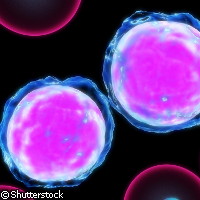Gene identified as tumour suppressor
European scientists have linked failure of the PTPN2 (protein tyrosine phosphatase non-receptor type 2) gene to the development of acute lymphoblastic leukaemia (ALL). When PTPN2 stops working or is lost altogether, it causes cancer cells to grow faster and live longer. So the gene acts as a tumour suppressor when it is fully functional. The study is part of the MOLTALL ('Molecularly targeted therapy for T cell acute lymphoblastic leukemia') project, which was funded EUR 1.4 million by the European Research Council (ERC) under the Seventh Framework Programme (FP7). Findings are published in the journal Nature Genetics. MOLTALL is headed by Professor Jan Cools from Vlaams Instituut voor Biotechnologie and Katholieke Universiteit Leuven (VIB and K.U.Leuven) in Belgium, who received an ERC Starting Grant in 2007 (the scheme provides emerging researchers with the opportunity to consolidate their own research team and conduct their own independent research in Europe). The aim of the project is to examine the molecular pathogenesis of T-cell acute lymphoblastic leukaemia (T-ALL) and to generate novel targeted therapies. In the current study, Professor Cools worked with a team of European researchers, including VIB/K.U.Leuven PhD student Maria Kleppe, and Dr Peter Vandenberghe of K.U.Leuven and Hôpital Saint-Louis in France. The scientists discovered during their research that the PTPN2 gene was lost in the DNA (deoxyribonucleic acid) of the cells of some leukaemia patients (causing cancerous cells to multiply), and identified PTPN2 as a negative regulator of the activity of a specific kinase. Overall, their research provides evidence that the gene has a tumour suppressor role and is a major player in the onset of ALL. The study has also provided new leads on kinases and phosphatases (enzymes able to switch specific cellular functions on and off) in cancer development. We have known for some time that errors in kinases and phosphatases are potential causes of cancer. The study now demonstrates that when these errors occur together, the carcinogenic effects can reinforce one another. The team also found that these errors can make the cells more resistant to kinase inhibitors (cancer treatments). ALL is a fast-growing cancer that affects the lymphoid cells, one of two main types of white blood cells. Abnormal cells ('leukaemia cells') develop and grow quickly, overwhelming the normal red and white blood cells and platelets (irregularly shaped cell fragments) that the body needs to remain healthy. Patients with ALL and other types of leukaemia are typically susceptible to infections since white blood cells protect against viruses and bacteria. The 'acute' in its title refers to the speed of the disease; if left untreated it can cause untimely death. ALL represents almost one third of all cancer diagnoses in children under the age of 15. It is known to impact children most prominently during the ages of 2 to 5 years. But the disease can also affect adults, usually over the age of 45. T-ALL is a high-risk type of ALL. With this leukaemia, cells that would usually turn into white blood cells start to divide uncontrollably creating a large number of immature cells. There have been very few factors associated with a higher risk of developing T-ALL. As a result of the research, however, it is apparent that T-ALL develops when mistakes occur in several genes at the same time. The emphasis for the scientists is to identify genes that underlie T-ALL but also to unravel the specific combinations that spur on the disease. The team believes this is fundamental to the development of therapies that focus on more than just one target.
Countries
Belgium



